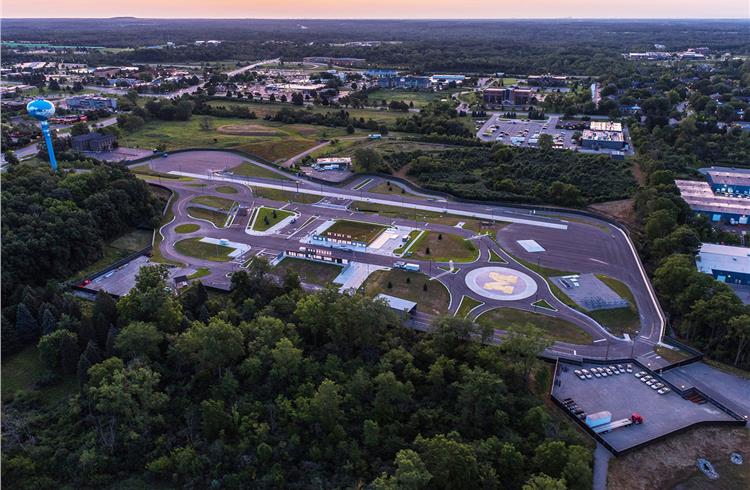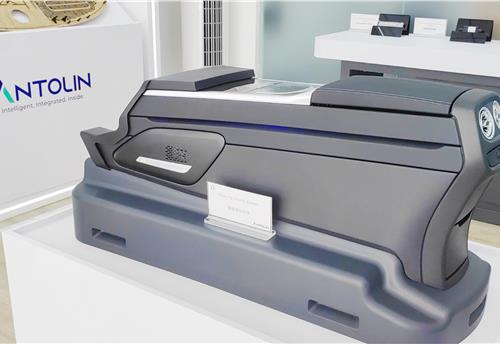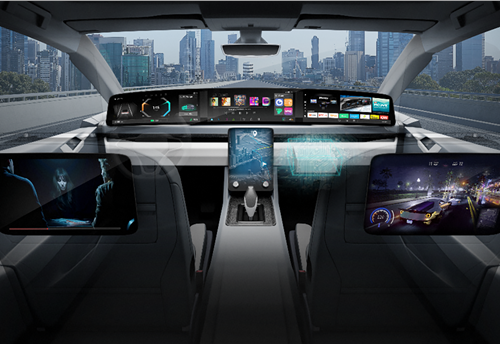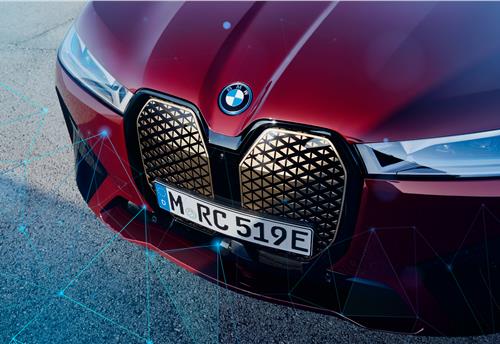University of Michigan throws open Mcity for connected and driverless vehicles
Mcity is a 32-acre simulated urban and suburban environment that includes a network of roads with intersections, traffic signs and signals, streetlights, building facades, sidewalks and construction obstacles.
The University of Michigan has opened Mcity, the world's first controlled environment specifically designed to test the potential of connected and automated vehicle technologies that will lead the way to mass-market driverless cars.
Mcity is a 32-acre simulated urban and suburban environment that includes a network of roads with intersections, traffic signs and signals, streetlights, building facades, sidewalks and construction obstacles. It is designed to support rigorous, repeatable testing of new technologies before they are tried out on public streets and highways.
"We believe that this transformation to connected and automated mobility will be a game-changer for safety, for efficiency, for energy, and for accessibility," said Peter Sweatman, director of the U-M Mobility Transformation Center. "Our cities will be much better to live in, our suburbs will be much better to live in. These technologies truly open the door to 21st century mobility."
Mcity was designed and developed by U-M's interdisciplinary MTC, in partnership with the Michigan Department of Transportation (MDOT). "MTC and Mcity highlight the interdisciplinary strengths of U-M," said U-M president Mark Schlissel. "The initiative also demonstrates the great potential in working with partners outside the university to address compelling issues of broad impact."
The facility also underscores Michigan's emergence as a leader in advanced mobility, building on the state's position as the global center of automotive R&D for more than a century. Today, Michigan is home to 375 automotive research centres, and has the highest concentration of industrial and mechanical engineers in the country.
"We've been a world leader in innovation, especially in terms of mobility," said Michigan governor Rick Snyder. "We put the world on wheels. We transformed how the world moved. Michigan is uniquely positioned to continue to be a leader in mobility, and the University of Michigan's new Mcity will play a critical role in that future."
"There are many challenges ahead as automated vehicles are increasingly deployed on real roadways," Sweatman said. "Mcity is a safe, controlled, and realistic environment where we are going to figure out how the incredible potential of connected and automated vehicles can be realised quickly, efficiently and safely."
In particular, Mcity allows researchers to simulate the environments where connected and automated vehicles will be most challenged. Even seemingly minor details a vehicle might encounter in urban and suburban settings have been incorporated into Mcity, such as road signs defaced by graffiti and faded lane markings.
The types of technologies that will be tested at the facility include connected technologies – vehicles talking to other vehicles or to the infrastructure, commonly known as V2V or V2I – and various levels of automation all the way up to fully autonomous, or driverless vehicles.
MTC is a public-private partnership among industry, government and academia. The centre was established to lay the foundation for a commercially viable ecosystem of connected and automated mobility that will revolutionize the movement of people and goods worldwide. A key MTC goal is to put a shared network of connected, automated (including driverless) vehicles on the road in Ann Arbor by 2021.
In addition to Mcity, MTC has three on-roadway connected and automated vehicle deployments underway. With the help of the Michigan Economic Development Corporation, MTC is building on a nearly 3,000-vehicle connected technology project launched three years ago by the U-M Transportation Research Institute to create a major deployment of 9,000 connected vehicles operating across the greater Ann Arbor area. MTC is also partnering with industry and the Michigan Department of Transportation to put 20,000 connected vehicles on the road in Southeast Michigan. The third piece of the plan calls for deploying a 2,000-vehicle mobility service of connected and automated vehicles in Ann Arbor.
"This unique combination of a purpose-built test environment and real-world deployments sets U-M apart from other organisations and institutions doing similar work," said Jim Sayer, director for deployment for MTC.
MTC's industry and government partners reflect the diversity of perspectives required to meet the challenges ahead. In the private sector, MTC partners include automakers and top tier auto suppliers, but also traffic signal and traffic sensing companies, insurance providers, telecommunications, big data, IT and more. On the public side, MTC is working with federal, state, and city governments.
MTC was launched in 2013 and Mcity construction began last year. About $10 million has been invested in the test facility, with funding coming from U-M and MDOT. Mcity will be available for use by any organization, but priority will be given to MTC partners and U-M faculty and students.
MTC is working closely with 15 Leadership Circle member companies, each investing $1 million over three years, and engaging in thought leadership. Thirty-three affiliate members are also contributing, and investing $150,000 over three years. Current Leadership Circle companies are:
Delphi Automotive
Denso Corporation
Econolite Group
Ford Motor Co
General Motors
Honda Motor Co
Iteris, Inc
Navistar, Inc
Nissan Motor Co
Qualcomm Technologies
Robert Bosch
State Farm Mutual Automobile Insurance Company
Toyota Motor Corp.
Verizon Communications
Xerox Corp.
RELATED ARTICLES
Antolin unveils sustainable tech solutions at Beijing Motor Show
In line with its China market roadmap, Antolin is showcasing its latest advances in lighting, HMI, electronics, and sust...
Visteon wins $1.4 billion in new business in Q1 2024, launches 26 new products
Digitisation of vehicle cockpit megatrend is a key growth driver for Visteon with over $400 million of displays wins; Vi...
BMW uses Catena-X ecosystem using real-world CO2 data to enhance quality
Working together with partners and suppliers, the company has modelled a complete data chain for the first time using re...





 By Autocar Pro News Desk
By Autocar Pro News Desk
 21 Jul 2015
21 Jul 2015
 2539 Views
2539 Views









